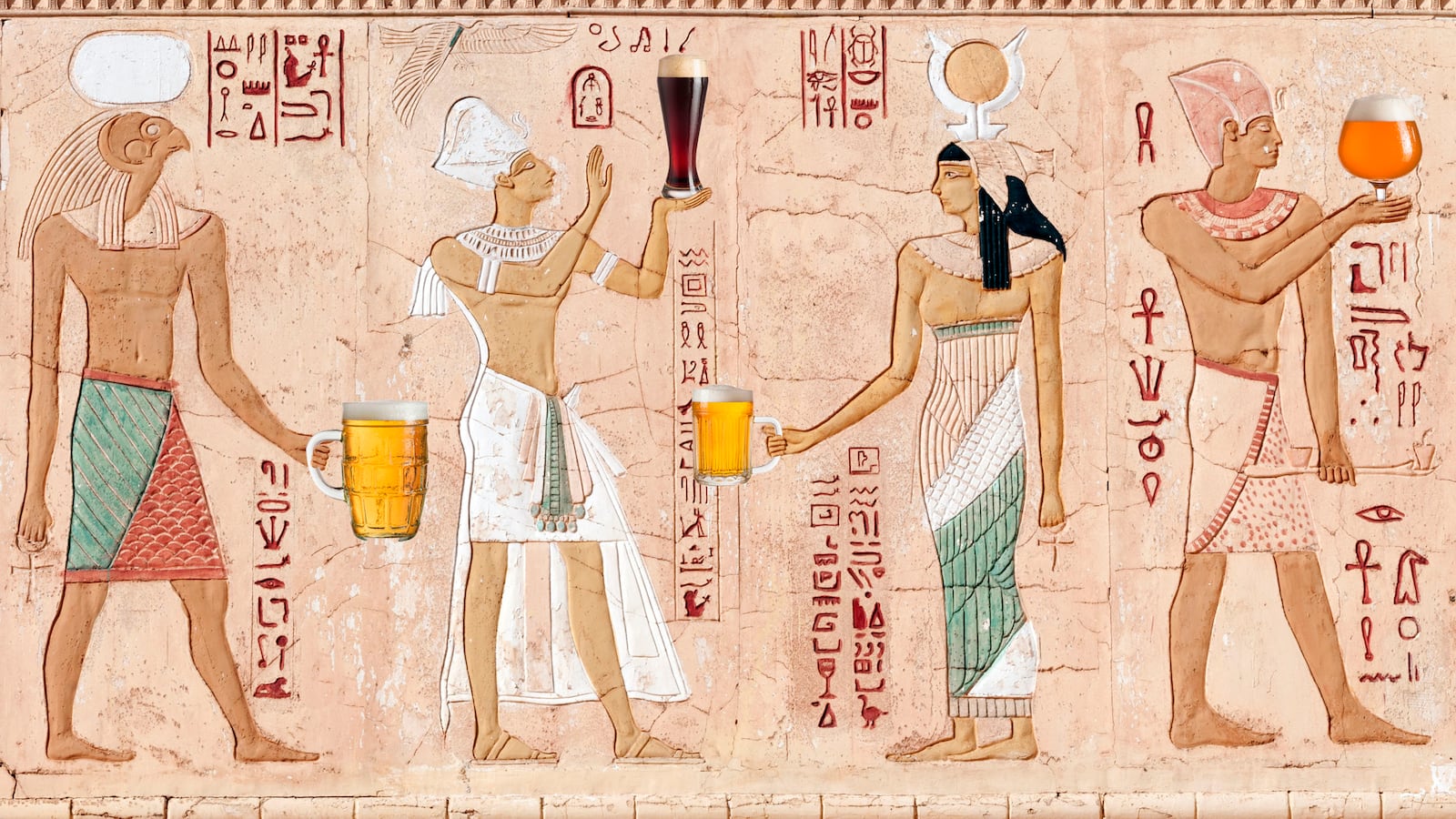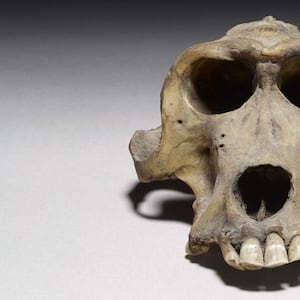Imagine excavating an ancient burial ground and running across a brewery. This is exactly what happened last month when the Egyptian government announced that a team of Egyptian and American archaeologists had discovered what may be the world’s oldest known beer factory. Pyramids, Pharaohs, and now tasty adult beverages—ancient Egypt had it all.
The factory was unearthed at Abydos, 280 miles south of Cairo and west of the Nile river. Abydos is primarily known for its temples and funerary practices, with a number of monuments honoring Osiris, the god of the dead. Mostafa Waziri, secretary general of the Supreme Council of Antiquities, noted that the discovery was made at the site of an ancient burial ground and that the beer factory dates to the reign of King Narmer, who lived and ruled at the beginning of the First Dynastic period, more than 5,000 years ago.
Dr. Matthew Adams, of the Institute of Fine Arts at New York University and one of the leaders (along with Dr. Deborah Vischak of Princeton University) of the mission, said that the factory was built to supply beer for royal rituals. The brewery itself was divided into eight large sections, each of which contained 40 clay pots for mixing grain and water. In its prime, Adams added, the brewery may have produced as much as 22,400 liters (nearly 6,000 gallons) of beer at a time. Beer was an important part of the ancient Egyptian diet, and was drunk by everyone from Pharaohs to peasants, and workers were even sometimes paid in beer.
As ancient as the Abydos factory is, it wasn’t the first place that beer was made. The world’s oldest alcoholic beverage likely comes from China, but beer likely emerged in the Middle East. The factory is roughly contemporaneous with ceramic vessels—still coated with a sticky beer residue—found in ancient Mesopotamia. The Sumerian “Hymn to Ninkasi” (ca. 1800 BCE), which was sung in honor of the goddess of beer, includes a recipe that was made by female priestesses. For ancient Sumerians, beer was a staple as it was healthier than drinking water from streams, which was often contaminated with animal waste.
Ancient Egyptian beer was flavored with mandrakes, olive oil and dates, which accounted for the sweetness; it was only with the rise of beer among medieval monks that hops were thrown into the mix. Even though hops are the base of the most popular form of beer today, there were rivals in the medieval world. As early as the eighth century A.D., brewers used gruit (a combination of botanicals that, like hops, prevent bacteria from growing in the liquid) in their concoctions. In his book Beer in the Middle Ages and Renaissance, Richard Unger argues that gruit was the most popular form of beer in the 12th century.
For many brewers, flavor additives were a necessity. Bavarian summer beers, for example, were fermented in open barrels that were exposed to bacteria and, thus, liable to go “off.” To cover up the taste of these summer beers, brewers would add other ingredients including legumes, salt, chalk, soot, and even ox bile and chicken blood. Beer has to taste pretty bad for you to add bile to improve the flavor. The popularity of beer led, almost inevitably, to regulation. In 1156 the city of Augsburg passed a decree insisting that bad beer “be destroyed or distributed among the poor at no charge.” By 1336 the city of Munich had appointed beer inspectors and in 1516, the Bavarian Duke Wilhelm IV issued the Reinheitsgebot, or beer purity law, which stipulated that only barley, hops and water could be used in Bavarian beer. The decree, which became law for all of Germany in 1906, is the world’s oldest food safety regulation.
The Bavarians were not the first to try and legislate beer, however. Cleopatra introduced a tax on beer—which ancient Egyptians preferred to wine—to finance her wars with Rome. As Jason Lambrecht has put it, “this was so outrageous to Egypt, that it would compare to a tax on water today.” As unpopular as Cleopatra’s tax was, other governments have tried it with varying degrees of success. In the 13th century, the French city of Aix-la-Chapelle decreed that brewers who failed to pay their taxes would have their right hands cut off. When the British raised taxes on beer in the 17th century, they inadvertently made gin the cheapest alcoholic beverage in the country. The ensuing widespread consumption of gin led to substantial alcoholism problems in Britain, with the death rate overtaking the birth rate during this period.
Beer taxation is not always a bad thing, however. When 27-year-old Arthur Guinness set up his brewery in 1752 he chose to make a dark beer with unmalted roasted barley because it allowed him to lower the taxes he would otherwise have paid on malt and extra coal. The introduction of customs duties on beer (and wine) by Britain in 1764 was one of the many tax-related outrages that contributed to the American Revolution. Once Independence was achieved, beer circulated widely and tax-free until Abraham Lincoln and Congress, like Cleopatra before them, introduced a $1 per barrel tax in 1862 to help pay for the Civil War. You might say that when you’re drinking beer, you’re supporting freedom.
Today, beer remains America’s most popular alcoholic beverage. Historically, this seems always to have been the case. Sixteenth-century colonists, adapting a recipe developed by Native Americans, used corn instead of malt in their recipes. It’s revealing that one of the first job advertisements placed by residents of Jamestown, Virginia in England was for “two brewers” to join them and make ale.
Like the Americans, the ancient Egyptians loved their beer. It was only when the Romans, who much preferred wine and bread, turned Egypt into the bread-basket of the Roman empire that breweries were replaced with granaries. With that the beer recipes of the Egyptians were lost—but perhaps this new discovery will help reveal the ancient beer industry’s secrets.








